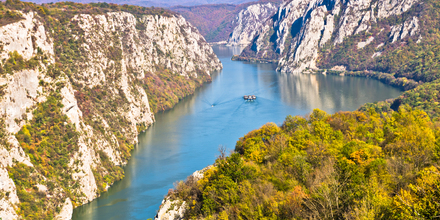Biodiversity
Our Work
Latest in Biodiversity Policy & Instruments
-

Natura 2000 and Jobs – Scoping the Evidence
The European Natura 2000 network provides job opportunities in sectors ranging from conservation and restoration, agriculture, forestry, fisheries to tourism, recreation, and health.
-
Fitness Check of the Birds and Habitats Directives
The Nature Directives (i.e. Birds Directive and Habitats Directive) are the key instruments of EU environmental policy; the Fitness Check support study, carried out by Milieu, IEEP and ICF for the European Commission DG-ENV, examined their effectiveness, efficiency, relevance, EU-added value and their coherence with the wider acquis.
-
Socio-economic benefits of EU Marine Protected Areas
They are more than just a nature conservation tool – a study by IEEP shows how EU Marine Protected Areas help to maintain and improve the provision of a wide range of ecosystem services and related socio-economic benefits.
-
Wildlife crime and the EU
Wildlife crime threatens global biodiversity. The EU is both a destination and a transit region for illegally-traded products. A new study for the European Parliament summarises the situation in Europe and offers policy recommendations in view of the upcoming EU Action Plan. A set of in-depth case studies outline the situation in five EU countries.
-
The Manual: Chapter 13 - Sectoral policies
This is a chapter of IEEP’s Manual of European Environmental Policy. This chapter sets out the development of some of the most important links between EU environmental policy and other policy areas, such as agriculture, forestry, fisheries, transport, trade, and so on.
-
Guidelines for biodiversity proofing the EU budget
This report provides a practical framework to ensure that spending under the EU budget has no negative impacts on biodiversity, and that spending under the EU budget is overall supportive to achieving the biodiversity targets.
-
Environmental policy and the UK’s review of the EU Balance of Competences
The UK Government’s Balance of Competences review has now taken evidence on 25 subject areas, including the 6 with the most relevance for the Environment. We take stock of the IEEP’s contributions, and consider what a possible UK renegotiation might mean for the environment.
-
40 years of cooperation in protecting the Baltic Sea
IEEP’s Marianne Kettunen gave a presentation at the Helsinki Convention (HELCOM) Jubilee Session on the understanding and valuation of marine ecosystem services, Helsinki, 5 Mar 2014.
-
Understanding and valuing ecosystem services provided by the Baltic Sea
IEEP’s Marianne Kettunen outlined key perspectives on the valuation of coastal and marine ecosystem services in a regional workshop on the Valuation of Marine and Coastal Ecosystem Services in the Baltic Sea, Stockholm (7-8 Nov 2013)
Highlights
-

Natura 2000 and Jobs – Scoping the Evidence
The European Natura 2000 network provides job opportunities in sectors ranging from conservation and restoration, agriculture, forestry, fisheries to tourism, recreation, and health.
-

Socio-economic benefits of EU Marine Protected Areas
They are more than just a nature conservation tool – a study by IEEP shows how EU Marine Protected Areas help to maintain and improve the provision of a wide range of ecosystem services and related socio-economic benefits.
-

Wildlife crime and the EU
